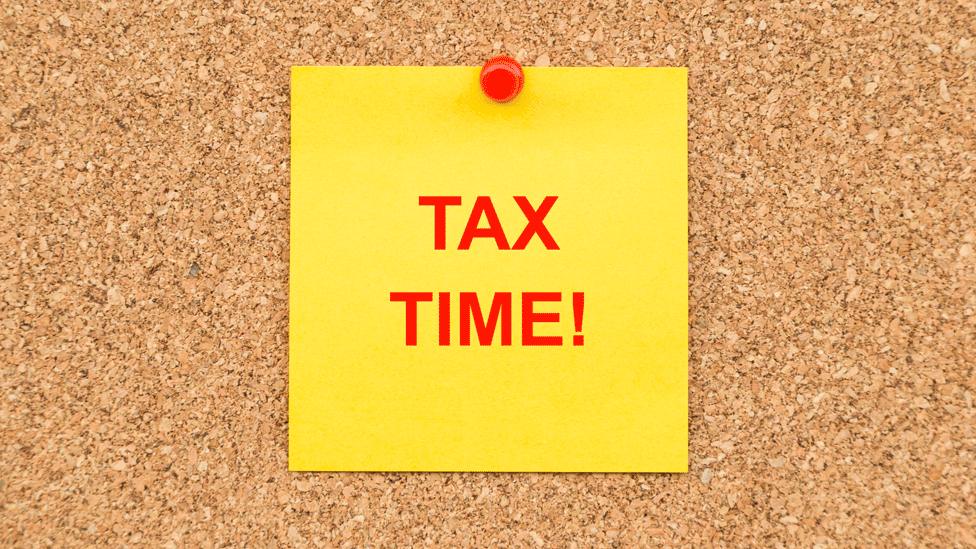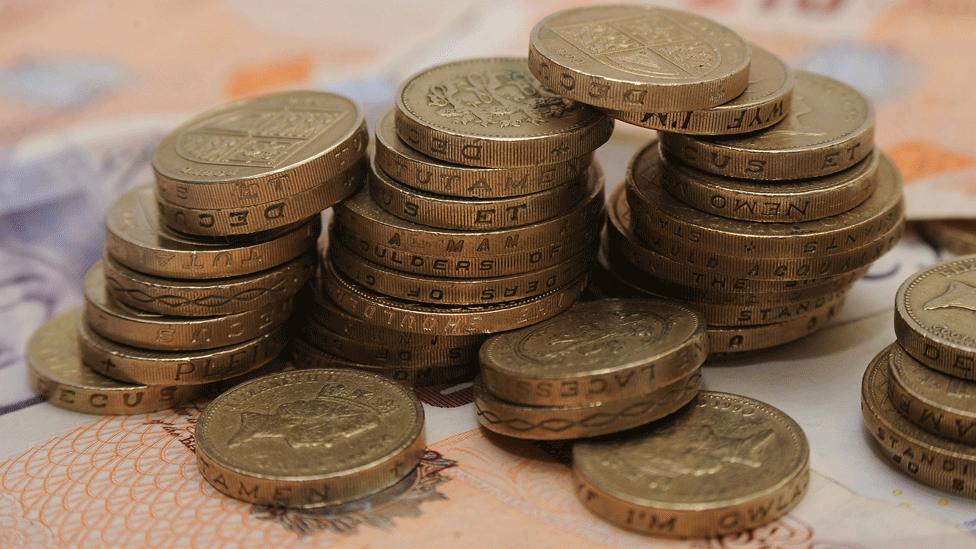Holyrood 2016: Would a 50p tax rate lose or gain money for Scotland?
- Published
The Holyrood election campaign is under way and the policy announcements from Scotland's main political parties are starting to flow.
But do they make sense to you and where do the figures used come from?
Here, I look at the debate on whether a 50p tax rate would lose or gain money for Scotland.
Is there an election issue you think needs more explanation? Send in your queries to newsonlinescotland@bbc.co.uk marking them "election questions".

Could Scotland lose money if the wealthiest faced a 50p income tax?

HM Revenue and Customs estimates 17,000 people in Scotland pay the additional tax rate (ATR). An estimate of how much more they would pay if their "earned income" was taxed more heavily requires a guess at how many would shift their tax affairs.
Some could choose to move their residence, and declare tax elsewhere, and as very high earners, they may have more than one home.
Some, who own their own companies, could shift earnings from salary to dividends. Salaries are taxed at Scottish income tax rates. Income from dividends and savings is taxed at rates set at Westminster, which are being reformed, but are generally lower than income tax rates.
That "behavioural change" as a result of tax rates shifting could mean lower revenue. And that is what Nicola Sturgeon is citing, as her explanation of shifting ground.

The SNP say revenue could drop by £30m a year, what's that based on?
Who pays 45p income tax?
332,000
Approximate total for the UK
17,000
Approximate total for Scotland
The advice Ms Sturgeon received from Scottish government economists (a service not available to opposition parties) explains how the SNP gets to this.
If the 17,000 ATR payers all pay the full amount on the same declarable income as the preceding year, there could be £110m more for the Scottish government to spend.
But it's assumed they won't. The problem is that it's very hard to judge how much behaviour would change if Scotland has a higher ATR than the rUK.
Of course, there are cross-border issues between other tax regimes, and particularly at the high-earner level. What marks out Scotland as different is that its business and finances are so heavily integrated with the rUK.
HM Revenue and Customs reckon that......
for every £100 declared by 45% additional tax earners a, 5 point increase would reduce their declared income by £48. The Institute of Fiscal Studies thought it might be £46.
The Scottish government has tried looking at the variety of responses.......
the lowest behavioural response is a reduction by £35 per £100 currently in the top banding. The highest response would see a £75 reduction.
These two responses lead to a very different outcome in tax revenue. Remember that no behavioural change would lead to a boost to revenue of £110m. The Scottish government says the lowest response would raise less than half that, £50m, in 2017-18.
But the highest response, if the accountants really get to work on the taxable income being declared, could lead to a reduction in revenue of £30m.
And that is the £30m quoted by Nicola Sturgeon, as her justification for not using this tax power. It depends on the most pessimistic outlook about high earners' tax returns.
However, Scottish Labour leader Kezia Dugdale - who believes putting the additional tax rate up to 50p would raise between £70m and £110m annually - said the pessimistic approach should not be taken.
She told BBC Radio Scotland's Good Morning Scotland programme that Her Majesty's Revenue and Customs has "had a crackdown on people being able to move their tax liability throughout the United Kingdom".

If a few of these top tax payers left would it make much of a difference?
Million-a-year earners
What's the impact of a tax rate change?
£1m
Annual income
50p
A possible new tax rate
-
£42,500 Extra tax to be paid
The Scottish government economists go on to point out, external that it would take very few people to make a big difference.
With only 17,000 payers of ATR in Scotland, it would take only 6% of them to move their tax affairs out of Scotland, in response to a 5 point hike in ATR, for it to have a neutral effect on revenue.
And look at it from the point of view of someone earning £1m per year. The tax increase would add £42,500 to their tax bill. If they or their declared income move out of Scotland, that is not £42,500 lost, but more than £400,000.
There aren't many people earning into seven figures. But together, these top rate tax payers contribute 13.7% of the total revenue from income tax in Scotland.
That is half the share of the top earners' contribution to UK income tax revenue. But it's still an important slug of revenue on which to take risks.
- Published29 March 2016
